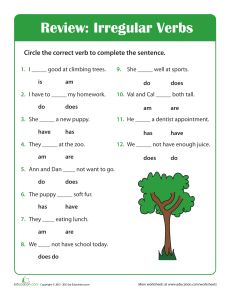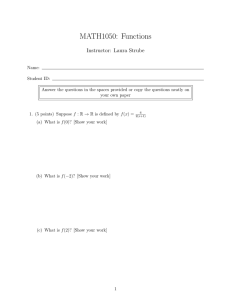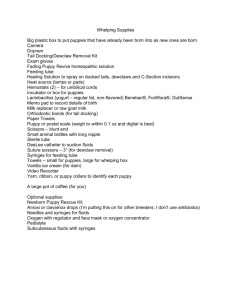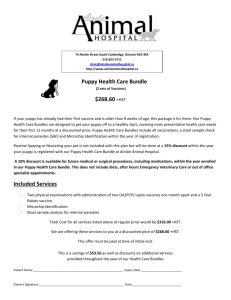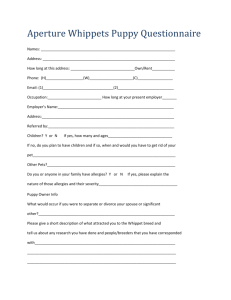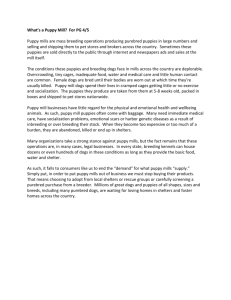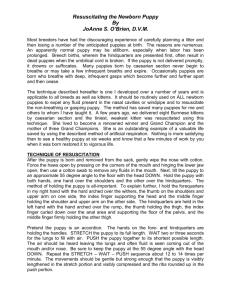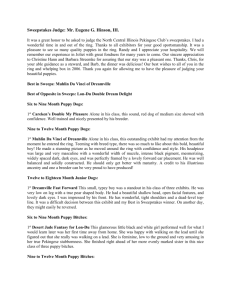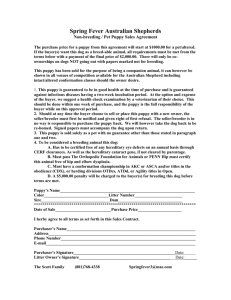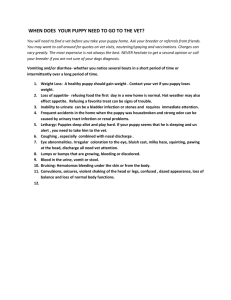New Edition It`s very important that puppies and kittens get a good
advertisement
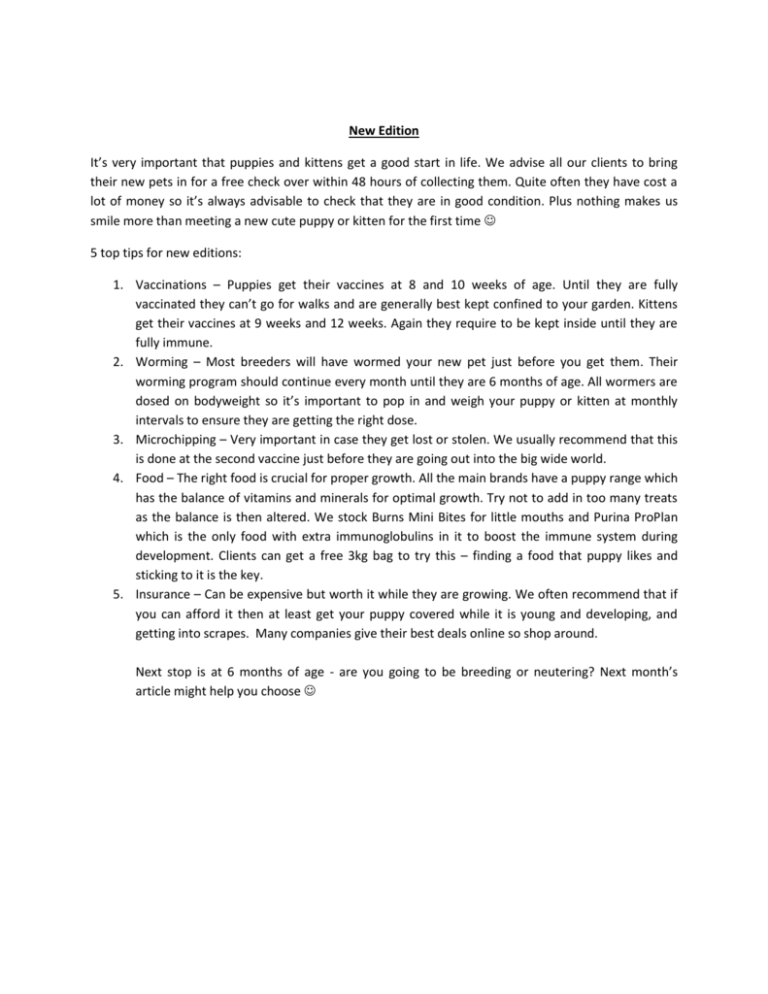
New Edition It’s very important that puppies and kittens get a good start in life. We advise all our clients to bring their new pets in for a free check over within 48 hours of collecting them. Quite often they have cost a lot of money so it’s always advisable to check that they are in good condition. Plus nothing makes us smile more than meeting a new cute puppy or kitten for the first time 5 top tips for new editions: 1. Vaccinations – Puppies get their vaccines at 8 and 10 weeks of age. Until they are fully vaccinated they can’t go for walks and are generally best kept confined to your garden. Kittens get their vaccines at 9 weeks and 12 weeks. Again they require to be kept inside until they are fully immune. 2. Worming – Most breeders will have wormed your new pet just before you get them. Their worming program should continue every month until they are 6 months of age. All wormers are dosed on bodyweight so it’s important to pop in and weigh your puppy or kitten at monthly intervals to ensure they are getting the right dose. 3. Microchipping – Very important in case they get lost or stolen. We usually recommend that this is done at the second vaccine just before they are going out into the big wide world. 4. Food – The right food is crucial for proper growth. All the main brands have a puppy range which has the balance of vitamins and minerals for optimal growth. Try not to add in too many treats as the balance is then altered. We stock Burns Mini Bites for little mouths and Purina ProPlan which is the only food with extra immunoglobulins in it to boost the immune system during development. Clients can get a free 3kg bag to try this – finding a food that puppy likes and sticking to it is the key. 5. Insurance – Can be expensive but worth it while they are growing. We often recommend that if you can afford it then at least get your puppy covered while it is young and developing, and getting into scrapes. Many companies give their best deals online so shop around. Next stop is at 6 months of age - are you going to be breeding or neutering? Next month’s article might help you choose
